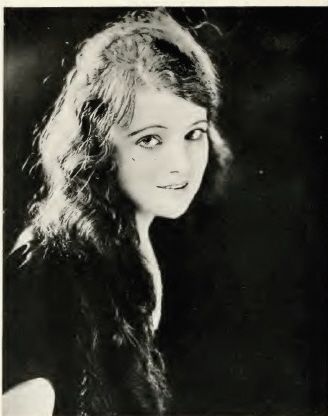Betty Ross Clarke (May Clarke)

Betty Ross Clarke was born May Clarke on May 1, 1892, in Langdon, North Dakota, the daughter of Charles Willard Clarke and Cora Ross. Her maternal grandfather was Leonard F. Ross, a brigadier general in the American Civil War, and her maternal great-grandfather was Ossian M. Ross, a prominent pioneer settler in Illinois who founded the cities of Lewistown and Havana. At the age of 3, May Clarke moved with her family to Minneapolis, Minnesota, where she was educated in the local schools and at the Stanley Hall School. She then studied dancing in New York City and spent a year on the vaudville circuit. She had intended to pursue a career as a ballet dancer, but she eventually had such success as a stage and film actress that she gave up the idea of dancing as a profession. On May 28, 1921, Betty Ross Clarke married Arthur Collins, a Los Angeles banker and former lieutenant in the British Royal Flying Corps. The couple had met at a dinner party during the filming of Mother o’ Mine. In 1923, Clarke and her husband moved to England, where she became a citizen and where she continued her career as a stage and film actress. In 1926, the couple moved to Australia, where Clarke was engaged to perform in several plays. Arthur Collins and Betty Ross Clarke returned to the United States in July 1929, apparently lured back to Hollywood by the “talkies.” She resumed her film career, primarily performing as a supporting or character actress, but also appearing in several uncredited roles. Her banker husband, who had been adversely affected by the stock market crash of 1929, began producing plays, directing films, and acting as a dialog director. In 1930, Betty Ross Clarke was honored as an “ardent feminist” at a luncheon of the San Francisco Center of the League of Women Voters. She was lauded for her support of voting rights for women even though she herself could not vote in the United States because she did not have her citizenship papers. She finally became a naturalized U.S. citizen on December 28, 1934. By that time, Betty Ross Clarke and Arthur Collins were divorced. Betty Ross Clarke died in Los Angeles, California on January 24, 1970. She was interred in Forest Lawn Memorial Park in Glendale, California.
During the 1920s, Clarke appeared in 14 silent films, including 11 U.S. films, two British films and one German film. In the United States, she worked for film companies that included Famous Players-Lasky, Thomas H. Ince, and Vitagraph Studios. She played the female lead in the film If I Were King opposite William Farnum and had other starring roles in silent films. Clarke’s first screen role in a “talkie” was as the character Dot Aldrich in The Age for Love. During the 1930s, she appeared in more than 20 sound films, including both feature films and short films. She typically played character roles, both credited and uncredited. Of note, she replaced the actress Sara Haden as Aunt Millie in two feature length Andy Hardy films. Betty Ross Clarke was occasionally billed in screen credits as “Betsy Ross Clarke” or “Betty Ross Clark,” and her name appears as “Betty Ross-Clarke” in some databases, such as the Internet Broadway Database. Throughout her career, Clarke often performed on both the theater stage and in films during the same time period. A newspaper advertisement in 1922 noted that audience members could “see her on stage and screen at the same time,” because she was performing in the play The Morning Him and also starring in the film At the Sign of the Jack O’Lantern. Commenting on the difference between stage and film acting, Clarke remarked that the “silent drama affords an easier life to those who choose it, for one has the nights free, to do as one likes. On the boards an actor’s or actresses’s time is always taken up.” Most of the silent films in which Clarke appeared have not survived. However, the films If I Were King and Mother o’ Mine are preserved in the silent film archive of the Library of Congress. A print of Mother o’ Mine is also housed in the UCLA Film and Television Archive. The silent film Traveling Salesman, with Roscoe “Fatty” Arbuckle in the leading role, can be found in the George Eastman House Motion Picture Collection in Rochester, New York. Many of the later sound films in which she appeared are still available, including Murders in the Rue Morgue, A Bride for Henry, Love Finds Andy Hardy, Judge Hardy’s Children, and Four Wives.
Born
- May, 01, 1892
- USA
- Langdon, North Dakota
Died
- January, 24, 1970
- USA
- Los Angeles, California
Cemetery
- Forest Lawn Memorial Park (Glendale)
- Glendale, California
- USA



